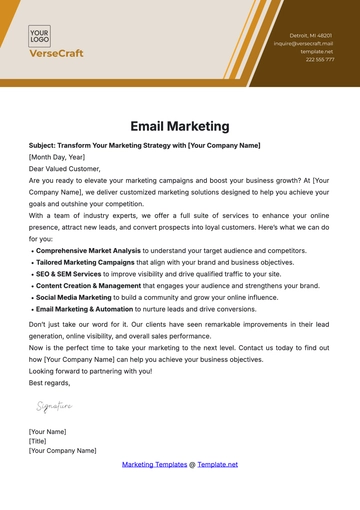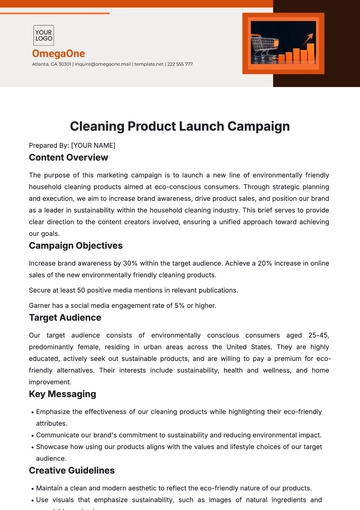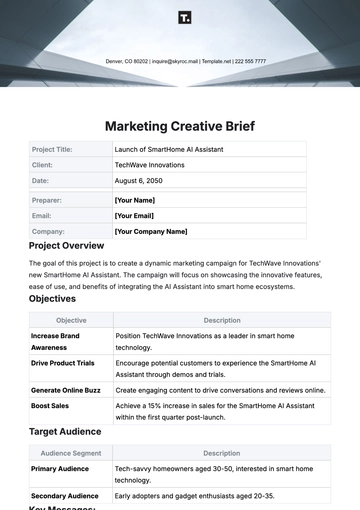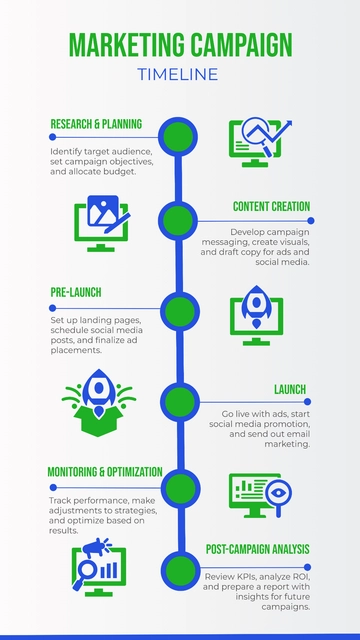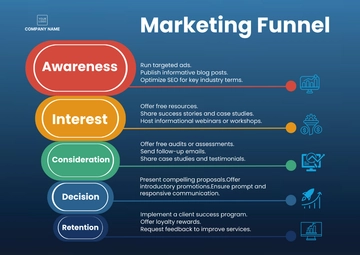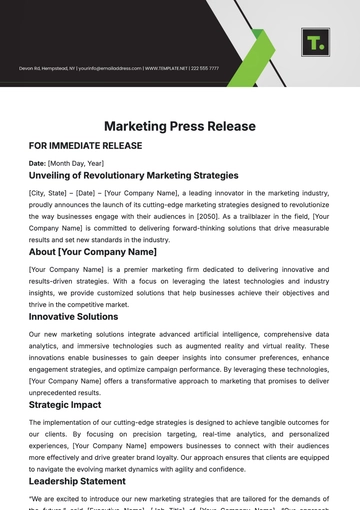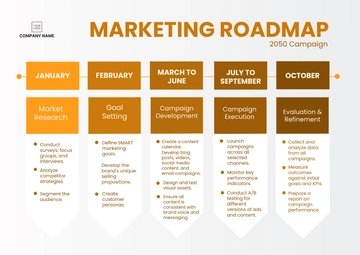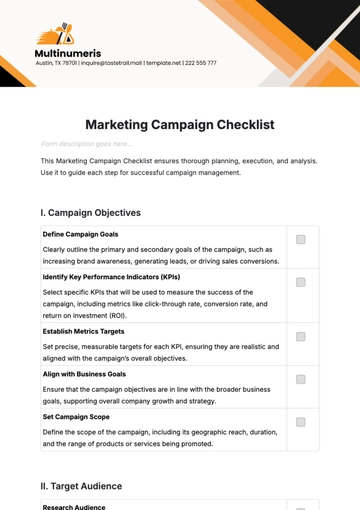Free Influencer Marketing Training Advertising Guide
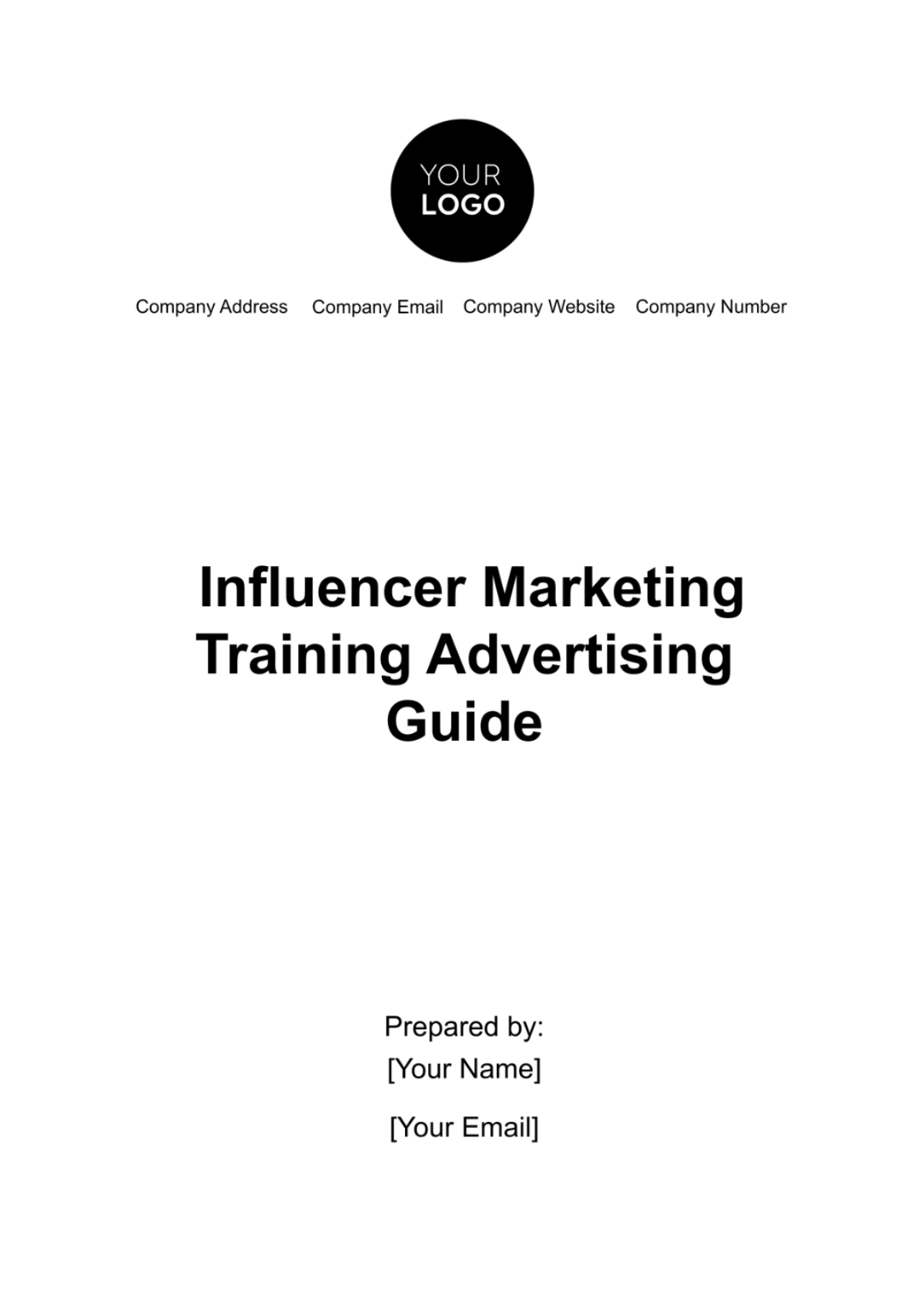
Introduction
A. Overview
Welcome to the Influencer Marketing Training Advertising Guide, presented by [Your Company Name]. In this comprehensive guide, we will delve into the world of influencer marketing and equip you with the knowledge and tools necessary to create successful influencer marketing campaigns.
Influencer marketing has emerged as a dynamic and effective strategy for brands and businesses to connect with their target audience in the digital age. It leverages the credibility, reach, and influence of individuals known as influencers to promote products, services, or ideas.
In recent years, influencer marketing has grown exponentially, reshaping the advertising landscape. Social media platforms like Instagram, YouTube, TikTok, and others have become the primary stage for influencer collaborations. This guide will provide you with insights into harnessing the power of influencers to achieve your marketing goals.
B. Purpose
The purpose of this guide is to educate marketing professionals, entrepreneurs, and businesses on the intricacies of influencer marketing. By the end of this training, you will be able to plan, execute, and measure the effectiveness of influencer marketing campaigns.
Through this guide, you will gain a deep understanding of influencer marketing, from its fundamental concepts to advanced strategies. We will equip you with the knowledge to identify the right influencers, craft compelling collaborations, and navigate the legal and ethical considerations that come with this marketing approach.
Understanding Influencer Marketing
A. What is Influencer Marketing?
Influencer marketing is a strategic partnership between brands and individuals who have established credibility, authority, and a loyal following in a specific niche or industry. These individuals, known as influencers, leverage their online presence and social media platforms to promote products, services, or causes to their engaged audience.
Influencers can include social media personalities, bloggers, YouTubers, and celebrities.
Brands collaborate with influencers to tap into their authenticity and reach a wider demographic.
Influencer marketing is often characterized by sponsored content, reviews, and endorsements.
Influencer marketing is not a one-size-fits-all approach. It can encompass a wide range of campaign types, from sponsored posts and product reviews to long-term ambassadorships. The success of influencer marketing lies in the genuine and relatable nature of the content created by influencers.
B. Why is Influencer Marketing Effective?
Influencer marketing has gained immense popularity due to its effectiveness in achieving various marketing objectives. Understanding why it works is crucial for businesses looking to harness its potential.
Studies show that consumers trust recommendations from influencers more than traditional advertising.
Influencer marketing can generate high engagement rates, leading to increased brand visibility.
It allows for precise targeting, reaching specific demographics and niches.
Influencers often have a deep connection with their audience, and their recommendations are seen as authentic and trustworthy. This trust factor can significantly impact consumers' purchasing decisions and brand perception.
Getting Started with Influencer Marketing
A. Identifying Your Target Audience
Before you embark on an influencer marketing journey, it's crucial to identify and understand your target audience thoroughly. Your target audience represents the individuals most likely to engage with your brand, products, or services. Identifying them will form the foundation of your influencer marketing strategy.
Conduct market research to define your target audience demographics, such as age, gender, location, interests, and online behavior.
Create detailed buyer personas to understand the specific needs, pain points, and preferences of your ideal customers.
Segment your audience to tailor influencer collaborations for different customer segments.
Understanding your target audience ensures that your influencer marketing efforts are focused on reaching those who are genuinely interested in your offerings. This precision not only maximizes your ROI but also enhances the effectiveness of your campaigns.
B. Selecting the Right Influencers
The success of your influencer marketing campaign hinges on selecting the right influencers who resonate with your brand and can effectively engage your target audience. Not all influencers are the same, and choosing the ones who align with your brand values and campaign objectives is paramount.
Define criteria for influencer selection, considering factors such as niche relevance, follower demographics, engagement rate, and authenticity.
Utilize influencer marketing platforms and tools to discover potential influencers and evaluate their performance history.
Build authentic relationships with influencers by engaging with their content and understanding their content style and audience interaction.
Selecting the right influencers ensures that your message reaches the right people in an authentic and relatable manner. Collaborations with influencers who genuinely appreciate your brand lead to more meaningful and impactful campaigns.
C. Setting Clear Objectives
Clear and well-defined objectives are the guiding stars of your influencer marketing campaigns. Before launching any campaign, you must establish specific, measurable, achievable, relevant, and time-bound (SMART) objectives. These objectives will help you track progress, measure success, and align your efforts with your overall marketing goals.
Objectives could include increasing brand awareness, driving website traffic, boosting product sales, or promoting a new product launch.
Define key performance indicators (KPIs) that align with your objectives, such as click-through rates, conversion rates, or social media engagement metrics.
Create a timeline for your campaign, setting start and end dates to ensure timely execution.
Setting clear objectives not only provides direction but also allows for effective campaign measurement and optimization. It ensures that your influencer marketing efforts contribute directly to your business's success.
Creating a Winning Influencer Marketing Strategy
A. Content Collaboration
Collaborating effectively with influencers to create compelling and authentic content is at the core of influencer marketing success. Content is the bridge between your brand and your target audience, and it should resonate with both. Crafting the right content strategy is essential for achieving your campaign objectives.
Develop a content calendar that outlines the types of content influencers will create and when they will publish it.
Ensure that the content aligns with your brand's messaging, values, and campaign objectives.
Encourage influencers to inject their unique personality and style into the content to maintain authenticity.
Successful content collaboration involves open communication, creative freedom, and a shared vision between your brand and influencers. It should not feel forced but rather a natural extension of the influencer's usual content.
B. Campaign Budgeting
Understanding the financial aspects of influencer marketing is crucial for managing your resources effectively and achieving a positive return on investment (ROI). Budgeting for your campaign involves determining the costs associated with influencer collaborations and allocating funds strategically.
Calculate your influencer marketing budget, taking into account influencer fees, content creation costs, and campaign promotion expenses.
Negotiate influencer fees based on factors like their follower count, engagement rate, and expertise in your industry.
Allocate budget resources to different stages of the campaign, including content creation, influencer payments, and campaign tracking tools.
A well-planned budget ensures that your influencer marketing campaign remains financially sustainable and maximizes the value derived from influencer collaborations.
C. Measuring ROI
Measuring the return on investment (ROI) of your influencer marketing campaign is essential for evaluating its success and identifying areas for improvement. ROI measurement involves analyzing the impact of your campaign on key performance indicators (KPIs) and comparing it to the resources invested.
Track KPIs such as website traffic, conversions, sales revenue, social media engagement, and brand mentions during and after the campaign.
Utilize analytics tools and platforms to gather data on campaign performance and audience behavior.
Calculate ROI by subtracting the campaign costs from the revenue generated or the value of achieved objectives.
Executing Your Influencer Marketing Campaign
A. Negotiating Contracts
Navigating the legal and contractual aspects of influencer partnerships is essential to protect the interests of both your brand and the influencers. Clear and well-structured contracts help define the terms and conditions of the collaboration, ensuring a smooth and mutually beneficial relationship.
Draft comprehensive influencer contracts that outline deliverables, payment terms, content usage rights, and campaign timelines.
Specify any exclusivity agreements, non-disclosure clauses, and conflict resolution procedures within the contract.
Ensure that the contract aligns with relevant legal regulations and industry standards to maintain transparency and professionalism.
Negotiating contracts should be a collaborative process where both parties understand their roles, responsibilities, and rights. A well-defined contract minimizes the risk of misunderstandings and legal disputes during and after the campaign.
B. Content Guidelines
Maintaining brand consistency and messaging alignment is crucial when working with influencers. Establishing clear content guidelines ensures that influencer-created content resonates with your brand's identity and values while also complying with industry standards and legal requirements.
Provide influencers with a style guide that includes brand colors, logos, and key messaging to maintain visual consistency.
Set content approval processes to review and approve influencer-created content before publication.
Communicate any content restrictions or sensitivities that influencers should be aware of to avoid potential controversies.
Effective content guidelines strike a balance between giving influencers creative freedom and ensuring that the content aligns with your brand's objectives and image. They help maintain a cohesive brand narrative across all influencer collaborations.
C. Tracking and Reporting
Real-time tracking and comprehensive reporting are essential for monitoring the progress and success of your influencer marketing campaign. Effective tracking allows you to make data-driven decisions and optimize your strategy as needed.
Implement tracking tools and analytics platforms to monitor the performance of influencer content in real-time.
Regularly review influencer-generated metrics, such as engagement rates, click-through rates, and conversion data.
Generate detailed campaign reports that provide insights into the ROI, audience demographics, and overall campaign effectiveness.
Tracking and reporting enable you to measure the impact of your influencer marketing efforts against your established KPIs. It also helps you identify trends and patterns that can inform future campaigns and marketing strategies.
Legal and Ethical Considerations
A. Disclosure and Transparency
Maintaining transparency and adhering to legal regulations is paramount in influencer marketing. The Federal Trade Commission (FTC) in the United States requires influencers to disclose their relationships with brands to ensure that consumers can differentiate between sponsored content and organic posts.
Educate influencers about FTC guidelines and the importance of clear and conspicuous disclosures in their content.
Include disclosure language in influencer contracts, specifying the type and placement of disclosures.
Monitor influencer content to ensure compliance with disclosure requirements and address any issues promptly.
Ensuring transparency in influencer marketing builds trust with your audience and protects your brand from potential legal consequences associated with non-disclosure.
B. Intellectual Property Rights
Understanding and respecting intellectual property rights is crucial in influencer marketing. Content ownership, licensing agreements, and usage rights should be clearly defined to prevent any disputes and ensure the legal protection of your brand and the influencers' work.
Clearly state content ownership rights in influencer contracts, specifying whether the brand, influencer, or both have ownership of created content.
Define the scope of content usage rights, including where and how the content can be used, and for how long.
Address any intellectual property disputes or violations through agreed-upon legal procedures in the contract.
Protecting intellectual property rights safeguards the integrity of influencer-created content and ensures that it can be utilized as intended without legal impediments.
Case Studies
A. Successful Influencer Marketing Campaigns
Examining real-world examples of successful influencer marketing campaigns provides valuable insights into the strategies and tactics that yield impressive results. Here are a few noteworthy case studies that showcase the power of influencer marketing:
1. Case Study 1: [Your Company Name] x Influencer 1
Objective: To increase brand awareness and product sales for a new beauty product.
Strategy: Collaborated with a well-known beauty influencer with a strong following in the target demographic.
Results: Within one month, the influencer's video review generated over 1 million views, resulting in a 30% increase in product sales.
2. Case Study 2: [Your Company Name] x Influencer 2
Objective: To promote a charity campaign and raise funds for a humanitarian cause.
Strategy: Partnered with a socially conscious influencer who had a history of supporting charitable initiatives.
Results: The influencer's heartfelt video endorsement led to a 200% increase in donations compared to previous campaigns.
3. Case Study 3: [Your Company Name] x Influencer 3
Objective: To launch a new tech gadget and generate buzz among tech-savvy consumers.
Strategy: Collaborated with a tech influencer known for in-depth product reviews and unboxings.
Results: The influencer's review video garnered 500,000 views in the first week, leading to a 40% increase in website traffic and pre-orders.
B. Challenges and How to Overcome Them
In influencer marketing, challenges can arise, but they can be overcome with the right strategies and approaches. Let's explore some common challenges and effective solutions:
Challenge 1: Identifying Authentic Influencers
Solution: Use influencer marketing platforms to analyze influencers' engagement rates, audience demographics, and post authenticity.
Challenge 2: Managing Influencer Relationships
Solution: Establish clear communication channels, provide detailed guidelines, and nurture long-term relationships with influencers.
Challenge 3: Ensuring Disclosure Compliance
Solution: Educate influencers about FTC guidelines, include disclosure language in contracts, and monitor content for compliance.
Challenge 4: Measuring ROI Effectively
Solution: Define clear KPIs, implement tracking tools, and analyze campaign data to calculate ROI accurately.
Challenge 5: Dealing with Negative Influencer Behavior
Solution: Address issues promptly through contractual clauses, maintain open communication, and have a crisis management plan in place.
Conclusion
This comprehensive Influencer Marketing Training Advertising Guide has equipped you with the knowledge and tools needed to master the art of influencer marketing. From understanding the fundamentals to crafting winning strategies and navigating legal and ethical considerations, you are now well-prepared to harness the immense potential of influencer marketing for your brand.
- 100% Customizable, free editor
- Access 1 Million+ Templates, photo’s & graphics
- Download or share as a template
- Click and replace photos, graphics, text, backgrounds
- Resize, crop, AI write & more
- Access advanced editor
Unlock the potential of influencer marketing with the Influencer Marketing Training Advertising Guide Template from Template.net. This editable and customizable guide equips you with the strategies and techniques needed to create impactful campaigns. Utilize the Ai Editor Tool to personalize the guide to match your brand's needs and goals effortlessly.
You may also like
- Marketing Google Slide
- Marketing Letter
- Marketing Quotation
- Marketing Report
- Marketing Strategic Plan
- Marketing Plan
- Marketing Proposal
- Marketing Flyer
- Marketing Presentation
- Real Estate Marketing Plan
- Marketing Contract
- Marketing Agreement
- Marketing Resume
- Marketing Checklist
- Marketing Brochure
- Marketing Banner
- Marketing Schedule
- Marketing Vector
- Marketing Logo
- Marketing Chart
- Marketing Campaign Plan
- Marketing Budget
- Marketing Postcard
- Marketing Poster
- Marketing Facebook Post
- Marketing Instagram Post
- Marketing Newsletter
- Marketing Infographic



